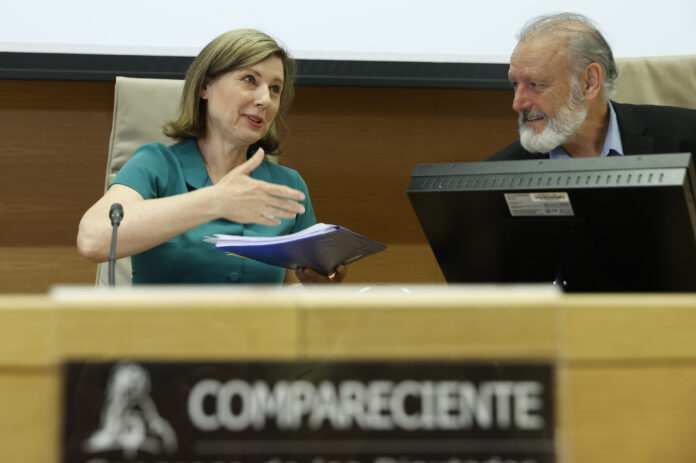The vice president of the European Commission, Vera Jourová, has urged Spain to renew the General Council of the Judiciary as soon as possible and has advocated that the system of election of its members be carried out “by their counterparts”. Jourová, before taking charge of the portfolio of Values and Transparency in the Union, was in charge of the powers of Justice.
The vice president has emphasized in the Justice Commission of the Congress of Deputies that the renewal of the governing body of the judges is a “key” issue to prevent the judicial establishment “from being politicized”, so that it can, ultimately, circumvent “that vulnerability”.
For the European Commission, he pointed out, “it is important that the appointment of these people be studied as a priority.” And he added: “There must be a system of election by their counterparts in accordance with the standards of the Council of Europe. This issue must be resolved as soon as possible.”
The Vice President of the Commission explained that this is one of the issues for which she has traveled to Spain. “These days I am here to discuss it and see how this can be solved,” she said. Shortly before appearing in Congress, the vice-president of the Commission warned at an informative breakfast that “if Spain complies with that rule” -the election of the members of the CGPJ by the judges themselves- there will be no problem, but if you choose because the majority are elected by political parties “it should be considered that it is a violation, an infraction”.
Jourová’s appeal comes in the midst of a debate on the unblocking of the CGPJ, which has been in office for more than three years, and the renewal of four of the twelve members of the Constitutional Court. A renewal of the latter that the Government intends to do partially, appointing the two magistrates that correspond to it without waiting for the Council of the Judicial Power to appoint the two attributed to its quota, and this despite the fact that the Constitution specifies that the change must be made by thirds, that is, in ‘packages’ of four.
For its part, the blockage in the appointment of the new members of the governing body of the judges (CGPJ) is caused by the discrepancy, so far unresolved, between the Government and the PP about the system for electing its members.
In their appearance, the spokespersons of various parliamentary formations have insisted on this point, lamenting what they consider to be a growing politicization and lack of independence of Justice. The representative of the PSOE has referred to the lack of renewal of the CGPJ blaming the PP for not complying with the constitutional mandate and has insisted on the need to proceed with the appointments with the system provided for by current legislation. His spokeswoman has agreed to “discuss the model” but has previously called on the PP to “give a show of loyalty.”
For its part, the spokesman for the popular has influenced the closure of the Government by refusing to bet on the formula advocated by the Council of Europe based on the election of the members of the CGPJ by the judges themselves.
The vice president of the Commission explained that the Commission is “greatly concerned” about the lack of renewal of the Council and has emphasized that in most countries that have a similar body, its members are elected “by the judges themselves and not by the political parties”.
Jourová has warned that the report that the European Commission will make public in July will insist on this concern about the Spanish system and there will also be a reference to the figure of the State Attorney General.
Conforms to The Trust Project criteria








